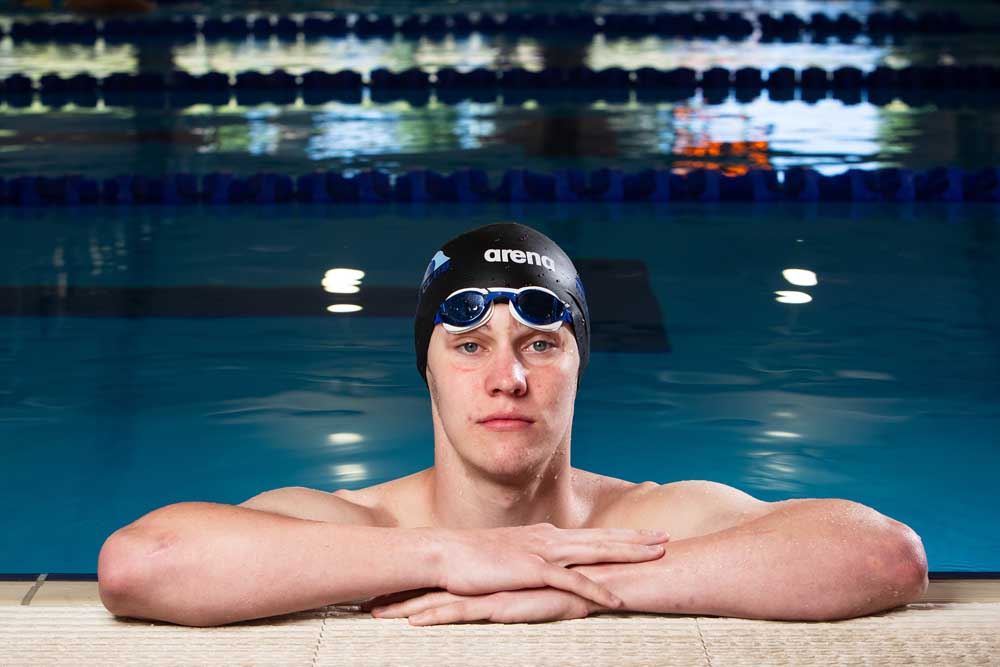OSU professor advances in contest to develop lithium technology
Published 5:00 pm Thursday, November 25, 2021

- Espiku logo
If humanity is going to science a way out of the climate crisis, people like Bahman Abbasi will be there to lead the way.
Abbasi, an assistant professor of energy systems engineering at Oregon State University-Cascades, is making strides on a new technology that extracts lithium from geothermal brine. His company, Espiku, is now a semifinalist in a $4 million contest to advance the technology.
Lithium is a key component of batteries used for grid-scale electricity storage as well as high-charge-density batteries used in electric cars and trucks. Extracting the metal can be a lucrative business as the world increasingly searches for raw materials used in renewable energy production. But lithium mining is highly invasive, leaving deep scars in the landscape.
“The way (lithium) is extracted from the Earth currently is really damaging to the environment, so (Espiku’s) technology is getting that lithium from a different source than the ground, it’s getting it from water, and it’s doing it in a way that doesn’t create a bigger problem when you extract it,” said OSU Cascades Interim Vice President Andrew Ketsdever.
The process to extract lithium from geothermal brine can take 18 to 24 months, during which time the brine sits in solar ponds until it reaches a highly concentrated state. Abbasi’s invention speeds up the process and does it with a lower environmental footprint.
Abbasi explains that the process does not require solar ponds and returns water to the environment without damaging aquifers.
“As we make advances in the technology, it can be almost entirely solar-driven,” said Abbasi. “So it will not have any emissions or greenhouse gas impact.”
Espiku, a water and energy technology company, is one of 15 contest entrants to advance to the semifinals in the U.S. Department of Energy’s Geothermal Lithium Extraction Prize.
The prize is awarded to the entrants that offer the most environmentally friendly and economically viable method to extract lithium from geothermal brine. In the U.S., the geothermal brine can be found at the Salton Sea and a handful of other sites, but around 99% of lithium used in the U.S. is imported.
Demand for lithium is expected to increase 500% by 2050, according to a World Bank report published in 2020. Car manufacturers recognize that lithium will play an increasingly important role in the global economy and the race is on to secure supplies of the lightweight metal.
Last year Tesla signed a sales agreement with North Carolina-based Piedmont Lithium, allowing the car manufacturer to buy about one-third of Piedmont’s production for up to 10 years. Producers will be increasingly on the lookout for technology that lowers the cost of production.
Abassi said his product could be commercially available in three to five years. He is hoping to sell the technology to battery production companies. Other potential buyers include companies that mine geothermal brine or those that buy the brine and extract the lithium.
Abbasi’s technology is portable and uses low-grade heat to pressurize the brine. He says production costs will be half of the current cost of lithium extraction.
“Beyond cost reduction, we will turn U.S. brine deposits into valuable resources for green lithium production, enhancing national energy security as we move more and more toward the electrification of our transportation sector,” Abbasi said.
The Department of Energy contest lasts 30 months. The phase one concept stage began in April with 40 teams, and the 15 that were selected for phase two were each awarded $40,000.
Phase two is the design and invent stage. A maximum of five participants will be selected for phase three, the fabricate and test phase. Those who reach phase three will share a $1.4 million prize pool.
Three winners will be selected from the remaining participants. The winners will share $2 million.






